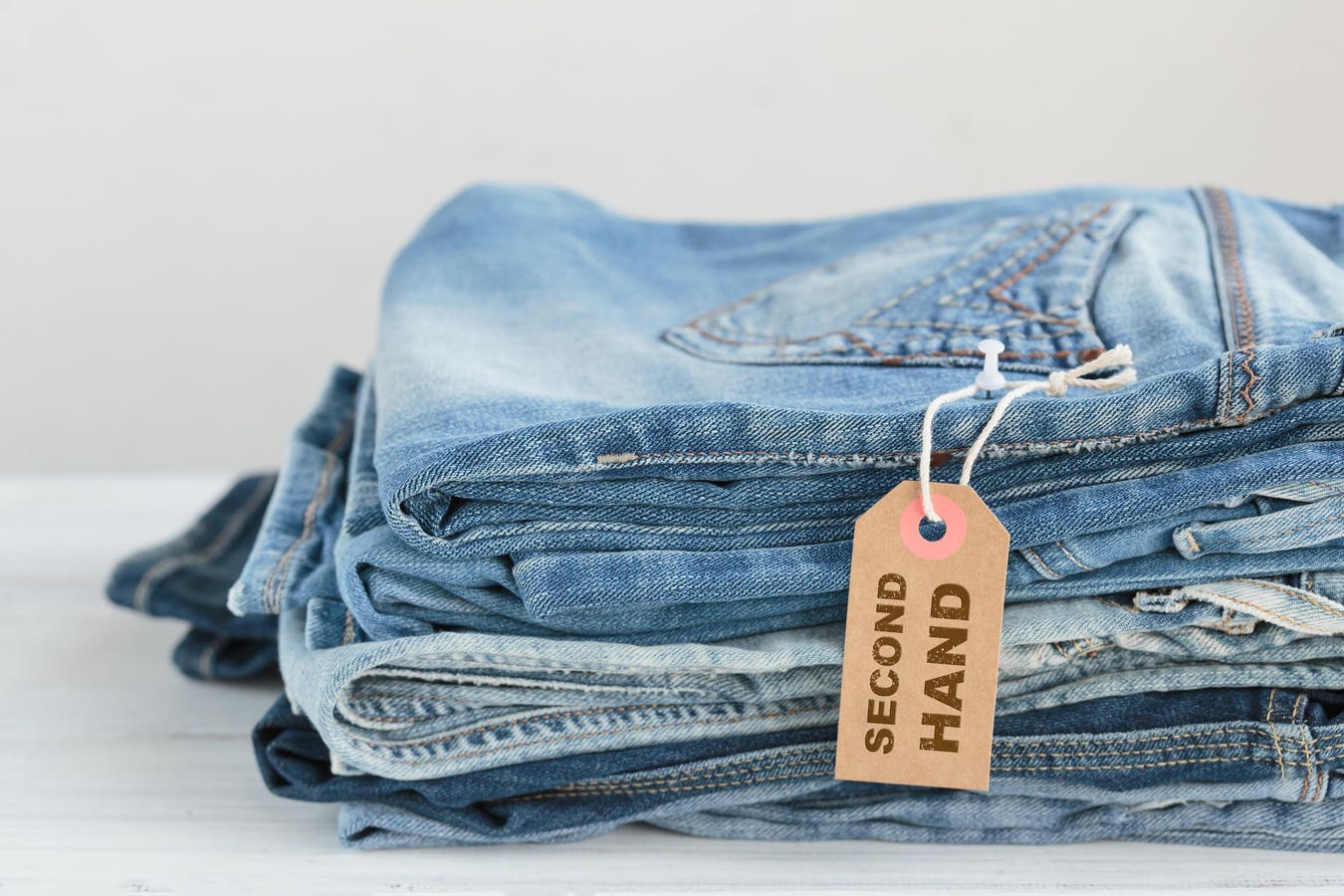The secondhand fashion market is on fire and more fashion brands want a piece of the action. Oakland, CA-based Trove offers a full suite of services to help brands bring resale to their current customers and use it to attract in new customers.
Founded in 2016 with Patagonia, Eileen Fisher and REI early adopters, Trove enables fashion brands to test the waters in resale and grow that segment of their business while contributing to the bottom line.
Last year 52% of consumers shopped for clothing secondhand and on average they spent about half their apparel budget on resale, according to ThredUp’s latest resale report. It’s an opportunity too good to miss.
Resale Is Growing Six-Times Faster
In the U.S. resale fashion will more than double in size from 2023 to reach $44 billion by 2028. And it will grow over six times faster than the broader retail clothing market, ThredUp reports.
While brick-and-mortar secondhand stores and non-profit charities currently hold the greatest share of sales, online resale is expected to account for half of all secondhand spending by 2025. Younger GenZs and Millennials (45%) prefer the convenience and value of online secondhand shopping over brick-and-mortar (38%).
Online there are many ways to shop secondhand with resale marketplaces being the number one channel. Marketplaces account for one third of the online resale market, split 20% among managed marketplaces, such as ThredUp, and 13% in peer-to-peer, like Poshmark.
But buying secondhand directly from the brand is increasingly consumers’ preferred way to shop, currently holding 20% share of the resale market. Consumers shopping resale tend to trust brands more than marketplaces. They appreciate a brand resale site’s ability to let them compare items side-by-side and to find a more curated selection on offer.
Branded Resale Market Leadership
Numerous companies, including ThredUp, Archive and Vestiarie Collective, offer fashion brands a leg up to get into the resale market.
However, Oakland, CA-based Trove claims to hold over 75% of U.S. branded resale traffic, including Arc-teryx, Brooks, Canada Goose, Carhartt, Eileen Fisher, Levi’s, Lululemon, Michael Kors, Patagonia, REI and some 30 more.
And it is taking its market leadership to the next level. It just acquired peer-to-peer resale platform Recurate to fill white space in its resale offerings and recently brought in a seasoned fashion industry executive Terry Boyle as CEO. Prior to joining Trove, Boyle served as CEO of Zulily and before that President of Trunk Club and Nordstromrack.com and Hautelook.
Initially attracted to Trove and the secondhand fashion market for its environmental promise, Boyle quickly understood that resale could give established fashion brands a way to fight back against the disruption from of off-price fashion retailers, including H&M, Zara, Temu, Uniqlo and Shein.
“I’m a growth guy and I got into resale because it became clear to me that Trove has the tools fashion brands need for growth,” he shared with me.
“Yes, resale has a positive environmental component, but it allows brands to hit price points that are attractive for existing and new customers, so that off-price doesn’t have as much appeal. I find that proposition compelling.”
Turnkey Resale Solutions
Describing Trove as a technology company, Boyle explains it has built a full suite of frontend and backend solutions to allow brands to test the waters in resale, then scale up as needed.
Its software easily integrates on the frontend to a brand’s website to include secondhand goods and it also supports Shopify integration. On the backend, it can handle some, most or all returns processing, routing, pricing and warehouse operations.
For example, some companies may want Trove to support all resale functions through its logistics partners or they might want to bring some functions in house.
“We’ve built a robust toolkit for brands to build the resale program they want to build. So we really allow them to pick from a menu and build the program that fits their needs now and into the future,” Boyle said.
Recurate Adds Peer-To-Peer
Recurate was an attractive acquisition because the one thing missing from Trove’s previous menu was the peer-to-peer resale option. That’s where the brand doesn’t take physical possession of used merchandise, but supports customers making trades with one another.
“When thinking about resale, a lot of companies start with peer-to-peer and then graduate to other models. Our goal is to be a one-stop shop for brands,” he continued.
The Recurate acquisition brought along brand partners including Steve Madden, Outerknown and Frye. Recurate’s founders Wilson Griffin and Adam Siegal have now joined Trove’s executive team.
The company didn’t disclose the acquisition price, but Trove has raised over $122.5 million in funding from investors including G2 Venture Partners, Capital One Ventures and Bank of Montreal.
And Trove promises to get brands up and running fast in resale, in as little as four weeks, having honed its business model since the company’s founding in 2016 and bringing early resale adopters Patagonia, Eileen Fisher and REI on board in 2017. Trove founder Andy Ruben continues as the company’s executive chairman.
Resale Inflection Point
Looking across the broader landscape of the fashion market, from high-end luxury down to off-price brands, Boyle believes it is at an inflection point with brands owning up to their responsibility to support the environment and their customers desire to shop secondhand.
The fashion industry is variously ranked as one of the worst environmental offenders. And once fashion goods are in the hands of consumers, they continue to contribute to environmental degradation. The number of times a garment is worn has declined by around 36% in 15 years, with cast-off clothes mostly ending up in landfills, according to the Ellen MacArthur Foundation.
Supporting a vibrant fashion resale program can be a way fashion brands can help not hurt the environment.
“A lot of brand know resale is good for the environment, but it’s like ‘taking our medicine,’ something they should do but don’t necessarily want to,” Boyle observes.
“But resale can be good for a fashion business beyond just from an environmental perspective,” he continued.
A branded resale program can bring in new customers and build deeper loyalty among existing customers. It’s proof-positive that a brand stands behind their quality and that they understand and respect the lasting value of the items they offer customers.
“Our business is to get brands off the sidelines and participate, making sure they prioritize this particular initiative over other things they may be doing. A lot of brands are already doing it, like Patagonia, which has a goal of having about 40% of their business be resale in the future.
“The industry is at an inflection point and with new laws and regulations coming, it’s time fashion brands take hold of this from a governance standpoint. But it also has to make business sense. It’s good for the environment but also good for business,” he concluded.
Updated September 19 @ 2 p.m.: Original version stated Trove headquarters were located in Brisbane, CA. Headquarters are now located in Oakland, CA.
See also:
Read the full article here





